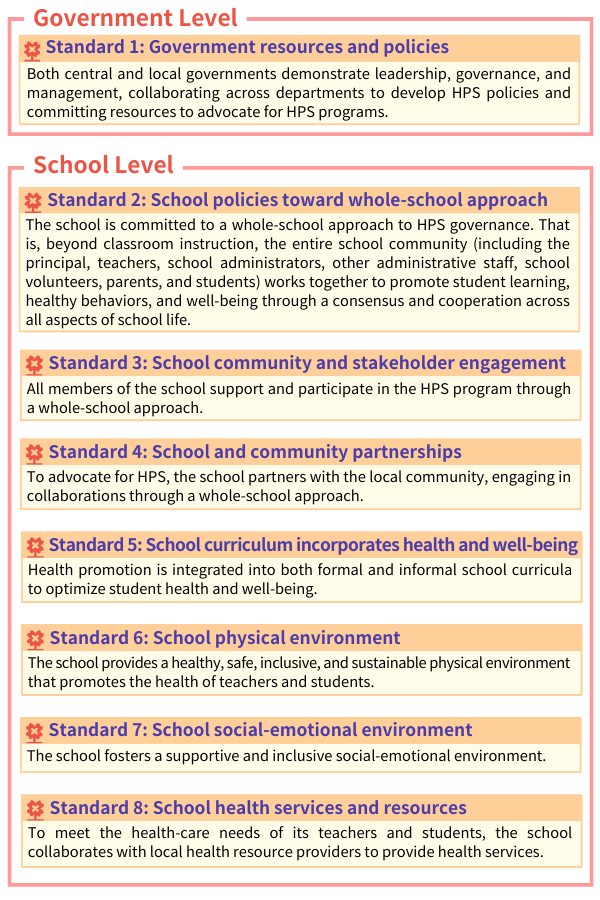Practice and Sustainability
In response to the MOE`s 2020 Competency-Based Learning Program and the WHO and UNESCO`s Global Standards for Health-Promoting Schools, Taiwan`s HPS Initiative aims to develop local characteristics while incorporating international development trends. In 2019, the HPA commissioned Professor Fu-li Chen and her research team at Fu Jen Catholic University to develop the standards for Taiwan`s HPS 3.0 as part of the Health Promoting School International Network project. The preliminary framework is based on the United Nations Sustainable Development Goals (SDGs), the global framework for HPS, key literature on local and international HPS, research findings from the 2019 international accreditation program for HPS, and insights from local and international experts and practitioners in HPS. In 2021, the drafting of the framework and implementation standards for Taiwan`s HPS 3.0 was completed.
Taiwan`s HPS 3.0 emphasizes practice and sustainability, aiming to ensure the health of all schoolteachers and students. Its implementation settings, standards, and context are as follows.
1. Implementation settings: HPS 3.0 starts as early as kindergarten and extends through university, connecting the learning, growth, and development of students throughout the school years.
2. Implementation standards: Previously focused on the six standards at the school level only, HPS 3.0 places increased emphasis on policy, leadership, and management at the government level, as well as a whole-school approach to health promotion governance, whole-school engagement, community partnerships, and whole-person health and well-being at the school level.
3. Context: HPS 3.0 incorporates Taiwan`s education policies and practices as well as international HPS standards to showcase Taiwan`s characteristics.



